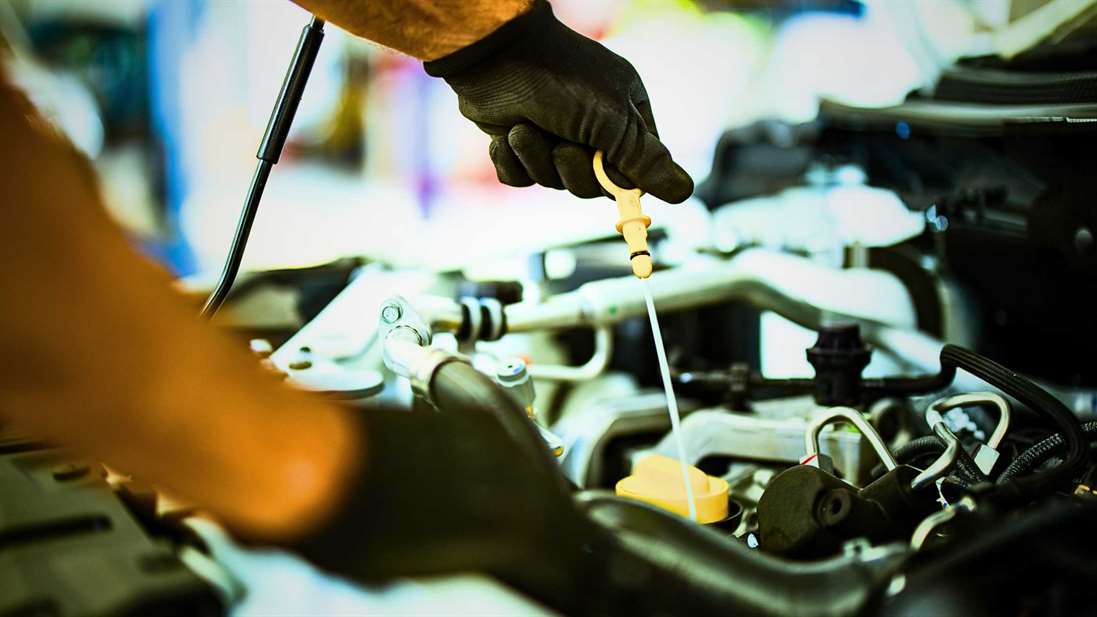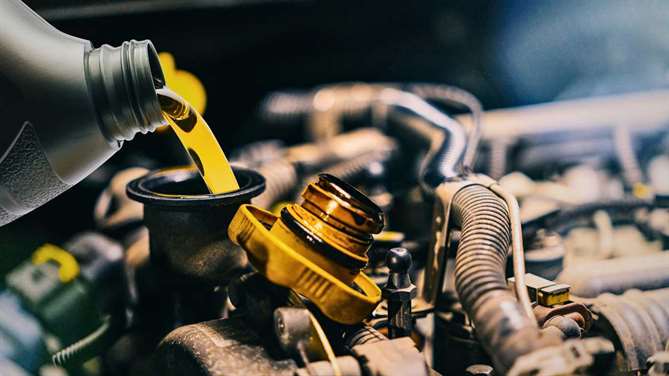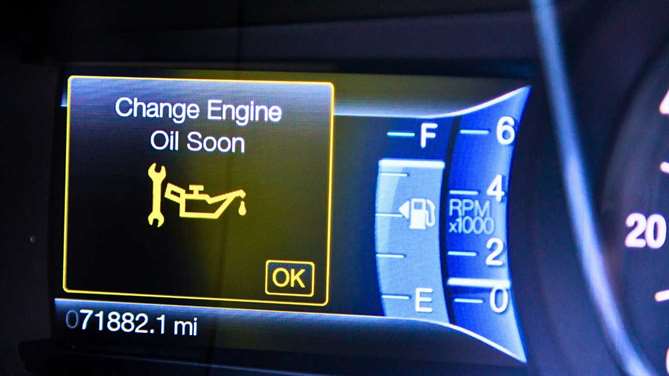The Importance of Oil Changes: A Guide for Car Owners

In today’s fast-paced world, car owners often overlook the significance of regular oil changes. However, maintaining a proper oil change schedule is crucial for the long-term health and performance of your vehicle.
This guide will delve into the importance of regular oil changes, the benefits they provide, and the process involved.
The Importance of Oil Changes
– Table of Content –
1. The Importance of Oil Changes for Your Used Car
3. Benefits of Regular Oil Changes
4. How Often Should You Change Your Oil?
5. Signs that Your Car Needs an Oil Change
6. DIY vs. Professional Oil Changes
8. Choosing the Right Oil for Your Car
9. Go Change Your Used Car’s Oil
The Importance of Oil Changes for Your Used Car
Every car owner understands the essential role oil plays in lubricating the engine and reducing friction. However, many fail to recognize the impact that regular oil changes have on the overall performance and longevity of their vehicles.
What is an Oil Change?
A change of oil is a staple of a good auto care routine. It involves replacing the old, worn-out oil in your car’s engine with fresh, clean oil.
It also includes replacing the oil filter, which helps trap contaminants and prevents them from circulating within the engine.
Why are Oil Changes Important?
Oil changes are crucial for several reasons.
First and foremost, oil lubricates the engine’s moving parts, preventing excessive friction and reducing wear and tear. Additionally, the oil helps regulate engine temperature, prevents the buildup of sludge and deposits, and improves fuel efficiency.
Benefits of Regular Oil Changes
Regular oil changes offer a multitude of benefits that contribute to the overall health and performance of your vehicle. They allow your used cars to get into very high mileage ranges without the need for huge repairs.
Extended Engine Life
Clean oil with the right viscosity provides optimal lubrication, reducing friction and minimizing engine stress. By changing the oil regularly, you ensure that your engine operates smoothly, potentially extending its lifespan.
Improved Fuel Efficiency
Fresh oil allows the engine to operate more efficiently, reducing internal resistance and enabling smoother movements. This improved efficiency leads to better fuel economy, saving you money at the pump.
Enhanced Performance
With clean oil, your engine can perform at its peak, delivering optimal power and responsiveness. Regular oil changes help maintain engine performance, ensuring a smooth and enjoyable driving experience.
Prevention of Costly Repairs
Neglecting regular oil changes can lead to a buildup of sludge and debris in the engine. This can hinder proper lubrication and cause excessive wear on vital components.
Over time, this can result in significant engine damage and potentially expensive repairs. By staying proactive and adhering to a consistent oil change schedule, you can prevent these issues.
Most of all, you can avoid costly repairs down the road.
How Often Should You Change Your Oil?

Determining the ideal frequency for oil changes depends on various factors, including manufacturer recommendations and driving conditions.
Manufacturer Recommendations
Car manufacturers typically provide guidelines on when to change the oil.
These guidelines are usually based on the number of miles driven or the duration since the last oil change. It’s crucial to consult your vehicle’s manual to understand the specific recommendations for the make and model of your used car.
Consider Driving Conditions
In addition to manufacturer guidelines, consider your driving conditions when determining the frequency of oil changes.
Factors such as frequent stop-and-go traffic, extreme temperatures, and dusty environments can put additional strain on the engine. In such cases, more frequent oil changes may be necessary to maintain optimal engine health.
Even without driving, your vehicle may still require the motor oil to be swapped. As it sits, it can begin to wear down and become just as bad as overused oil.
Type of Oil Change Service
The type of oil service you receive on your used car will determine how often you should change your motor oil.
Regular oil will require more frequent changes. This will typically be around three to five thousand miles.
Full synthetic oil or synthetic blend oil will allow you to go much further. You can expect to change this type of oil every eight to fifteen thousand miles.
Signs that Your Car Needs an Oil Change
Adhering to a regular oil change schedule is crucial. However, it’s also important to be aware of signs that indicate your car may need an oil change prior to that.
Many people believe that a certified pre-owned used car or brand-new car is not susceptible to oil changes. This is far from the truth.
Every vehicle will require an oil change at one point and will begin giving you clear signs of it.
Oil Change Warning Lights
Most modern vehicles are equipped with oil change warning lights that illuminate when the oil needs to be replaced. Pay attention to these indicators and take prompt action to ensure your engine remains properly lubricated.
Engine Noise
Unusual engine noises, such as knocking or ticking sounds, could be a sign that your oil is dirty or insufficient.
Fresh oil helps dampen these noises and ensures smooth engine operation.
Decreased Performance
Sluggishness, reduced power, or a decrease in fuel efficiency may indicate that your engine is not receiving adequate lubrication.
In such cases, an oil change might be necessary to restore optimal performance.
DIY vs. Professional Oil Changes
Car owners often face the decision of whether to perform oil changes themselves or seek professional assistance. Each approach has its pros and cons.
Pros and Cons of DIY Oil Changes
DIY oil changes can save you money and provide a sense of accomplishment. However, it requires the necessary tools, knowledge, and time commitment.
Additionally, improper oil disposal can harm the environment if not handled correctly.
You can also run the risk of stripping the filter and cause extreme damage to your engine.
Benefits of Professional Oil Changes
Professional oil changes offer convenience, expertise, and peace of mind.
Trained technicians can ensure the proper disposal of used motor oil. They can also provide additional maintenance checks, helping identify potential issues before they escalate.
Some businesses use oil changes as a loss leader to acquire new business. You can find frequent discounts that will save you time and money. You can also request for the air filter to be replaced as part of the service. Many times they throw it in as a freebie as it takes them only five to ten minutes to swap.
The Oil Change Process

Understanding the oil change process can help you appreciate the importance of this routine maintenance task.
Draining the Old Oil
First, the old oil is drained from the engine using the drain plug located on the oil pan. This allows for the removal of the tainted oil, including any piled debris or contaminants.
Replacing the Oil Filter
Simultaneously, the oil filter is replaced to ensure that the fresh oil remains clean and free from contaminants. The oil filter traps dirt, debris, and other particles, preventing them from circulating within the engine.
Adding New Oil
Once the old oil is completely drained and the oil filter is replaced, fresh oil is added to the engine. This replenishes the lubrication and ensures proper engine performance.
Proper Disposal of Used Oil
It’s crucial to dispose of used oil responsibly. Improper disposal can harm the environment and contaminate water sources. Many auto repair shops and recycling centers accept used oil for proper disposal or recycling. Be sure to follow local regulations and guidelines when disposing of used oil.
Drive Your Used Car
Once you’ve finished, let your used car run for a short period of time. This will allow for the new motor oil to circulate and lubricate the engine.
If you notice no leaks, it’s time to take it for a test drive. Make sure to pay attention to how the used car is running and any noises that might arise.
Choosing the Right Oil for Your Car
Selecting the correct type and viscosity of oil for your vehicle is essential to ensure optimal engine performance and protection.
Understanding Viscosity
Oil viscosity refers to its resistance to flow at different temperatures. It is denoted by a numerical value followed by the letter “W” for winter (e.g., 5W-30). The first number indicates the oil’s viscosity at low temperatures, while the second number represents viscosity at operating temperatures. Consult your vehicle’s manual or seek professional advice to determine the recommended oil viscosity for your car.
Synthetic vs. Conventional Oil
There are two main types of engine oil: synthetic and conventional.
Synthetic oil offers enhanced performance, better resistance to extreme temperatures, and improved protection against engine wear. However, it tends to be more expensive than conventional oil.
Conventional oil, on the other hand, is more affordable but may require more frequent oil changes.
Consider your driving habits, budget, and manufacturer recommendations when deciding which type of oil to use. It’s also very important to look at the vehicle history to determine the type of oil that was used previously.
Swapping between oils can be dangerous and should not be done frequently.
You should be able to call the dealership where you purchased your car for sale and request the service records.
Go Change Your Used Car’s Oil

Regular oil changes are vital for maintaining the health and performance of your car’s engine.
By adhering to a proper oil change schedule, you can extend your engine’s lifespan. You can also improve fuel efficiency, enhance performance, and prevent costly repairs.
Choosing to perform oil changes yourself or with the assistance of a professional makes no difference. Making this auto care routine maintenance task a priority is crucial for the longevity and reliability of your used car.
Oil Changes
– FAQs –
Q1. How often should I check my oil level between oil changes?
It’s recommended to check your oil level at least once a month to ensure it is within the acceptable range. This allows you to detect any potential leaks or consumption issues early on.
Q2. Can I use any type of oil for my car?
No, it’s essential to use the oil recommended by your vehicle’s manufacturer. Consult your owner’s manual or seek professional advice to determine the appropriate oil type and viscosity for your car.
Q3. Is it necessary to change the oil filter every time I change the oil?
Yes, it’s recommended to replace the oil filter with every oil change. A fresh oil filter ensures that contaminants are effectively removed, providing clean oil for the engine.
Q4. Can I skip an oil change if I haven’t driven many miles?
Even if you haven’t driven many miles, it’s still necessary to change the oil according to the recommended time interval. Oil degrades over time due to exposure to heat, moisture, and contaminants.
Q5. Can I recycle used oil at home?
It’s best to take used oil to a designated collection center or a recycling facility. They have the necessary equipment and processes to handle and recycle used oil in an environmentally friendly manner.
– Shameless Plug –
Contact Us Today to Get Approved For Your Pre Owned Vehicle
If you’re in the market for a used car, truck, SUV, or van, and you’re worried about your credit score, we are here to help.
Our buy here pay here financing is designed to help you get the pre owned vehicle you need and improve your credit in the process.
Contact us today to learn more about our selection of pre owned vehicles and bad credit car financing options.
Additional Resources To Help On Your Journey
We love to share the wealth! Here are some resources and trusted vendors that we personally use. They can help you take care of your vehicle as well as keep your credit and finances in tip-top shape:
Car Parts
High Quality and Affordable Car Parts: Advance Auto Parts
High Quality Dash Cams and Car Accessories: Rexing USA or VanTrue or Nextbase
Car Audio & Sound Systems: Eonon
Premium Wiper Blades & Accessories: Clix Auto
Easy Key Replacement & Programming DIY: Car Keys Express
High-Quality Orignal and Custom Car Lighting: LASFIT
Quality Car Parts/Accessories (mats, covers, assemblies): Oedro
Premium Car Detailing Supplies: Chemical Guys
High-Performance Car Parts & Air Filters: KN Filters
High-Performance Parts: Max Speeding Rods
Speed and Performance Parts: Spectre Performance
Air Intakes: Airaid
Original & Aftermarket Wheels: OE Wheels LLC
Battery Tenders: Deltran Battery
High-Quality Tires Of All Types: Priority Tire or Discount Tire
DIY Car Extras
In the event your dealer doesn’t provide you a history report: VinAudit
To learn to recondition your old car battery: EZ Battery Reconditioning
For DIY Ford vehicle repair: Ford Shop
To learn to take some knicks out of your car’s paint: High Quality Car Spray
If you find yourself in need of a car rental: Discover Cars or Airport Rental Cars or Holiday Autos
If you’d like to see what public car auctions are like: Gov Auctions or Gov Seized Auction
Personal Finance & Credit
To help you improve your credit: Axion Credit Repair or Coast Tradelines
For a DIY credit repair course: DIY Credit Repair
To help you get free of debt and increase your credit: What Lies In Your Debt?
If you’re in a bind and need cash quickly: Bad Credit Loans or Cash Advance
For personal loans of higher quantities: Fortuna Credit or Personal Loans
For a high cash-back credit card (make sure you only use it as if it’s a debit card!): Laurelroad
We will keep sharing all of our vendors that we have a great experience with. Only the ones we see align with our values as time goes on, both locally and nationwide.
